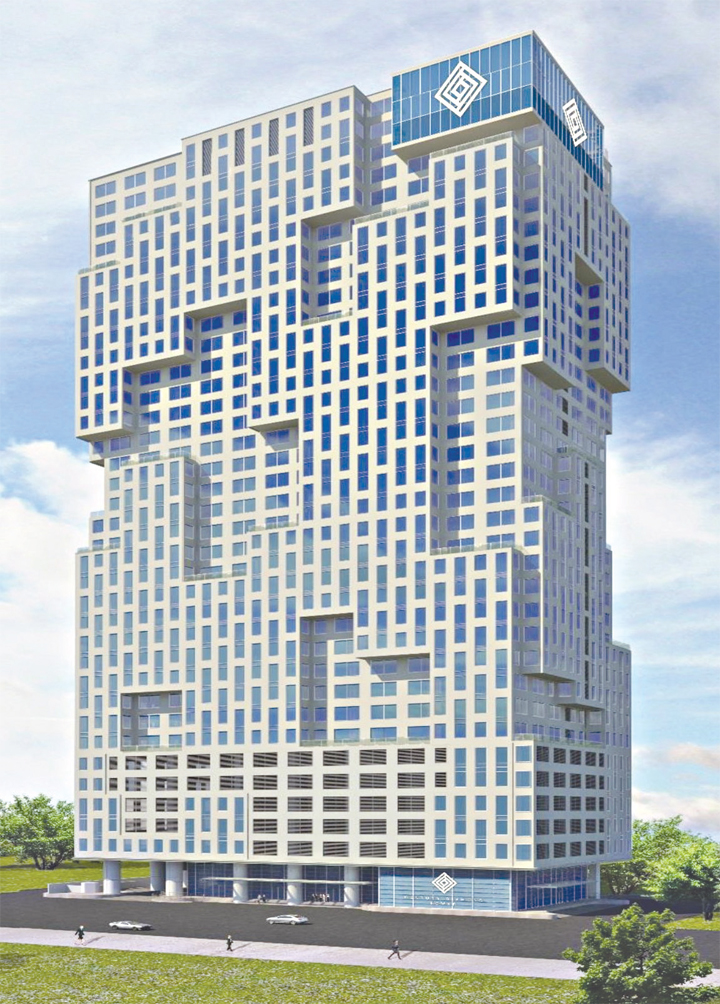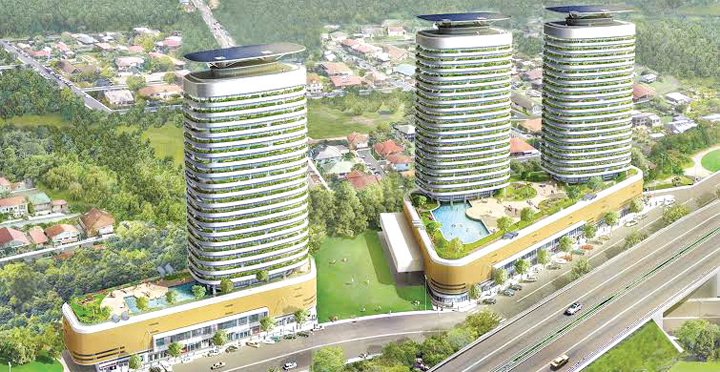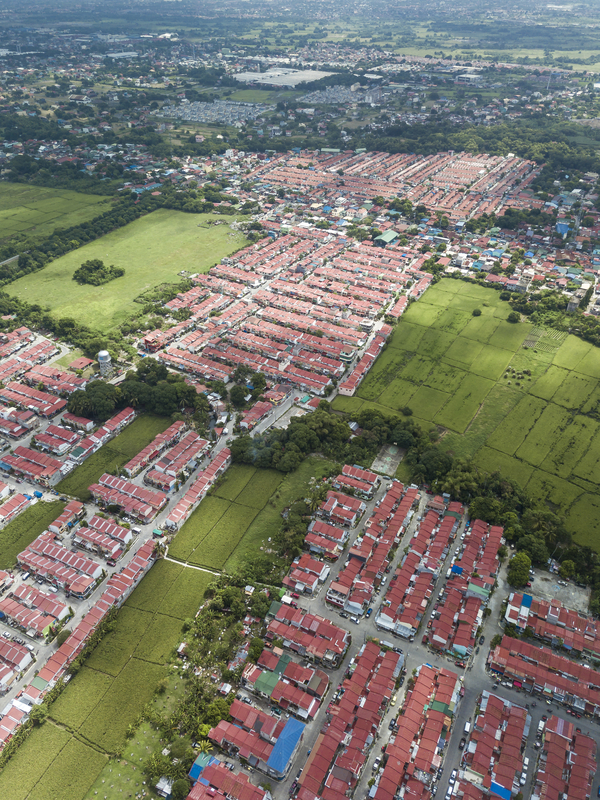
AS an advocate of urban inclusion in the real-estate industry, I am very happy to see the interest spreading out to places other than Makati and BGC.
Dynamism and fierce competition characterize the real-estate industry. Modern ideas challenge conventional real-estate norms and once passive regions emerge as appealing investment hot spots. That is why it is essential to be aware of the current state of the industry and to comprehend the different faces of this ever-changing market.
To serve as an avenue for discourse about the most relevant real estate happenings in the country, Prime Philippines, the fastest-growing real-estate consultancy and brokerage firm, held an engaging real-estate investment forum on July 17 at Shangri-La at the Fort, centralizing on the theme, “Beyond Borders.”

Spearheaded by Prime Philippines’s founder and CEO, Jettson “Jet” Yu, this business forum was an extension of the company’s commitment to deliver real-estate service at the highest standards by providing a modern perspective about the real-estate industry. Industry experts and public sector representatives were invited as speakers during this event to share their knowledge and insights about the state of the Philippine real-estate industry.
Rizany Irwan Muhamad Mazlan, deputy chief of Mission of the Embassy of Malaysia, highlighted the confidence in foreign sentiment of investing in the country. Philippines’s strong economic fundamentals backed by its attractive demographic profile, puts the country’s development potential in the spotlight. In fact, Board of Investments Division Chief Lanie Dormiendo cited that foreign investors have seen this potential in the country’s real-estate industry, being the industry with the third highest recipient of inward foreign direct investments. Both speakers underscored the opportunities that can result from the promotion of national developments like the surge of infrastructure projects and the introduction of government reforms that will ease the process of doing business in the country.
In the real-estate industry, investment opportunities can arise by considering a nontraditional point of view. This is what constantly drives Prime Philippines’s direction during its humble beginnings in Quezon City in 2013, when it aggressively expanded its services in Mindanao through its operations in Davao City, and now as it is exploring a lot of opportunities in Clark. Jet Yu expects Quezon City to be the gateway of the north as it is anticipated to become the most connected city in the next three to five years, with the upcoming infrastructure projects linking the city to other areas in Metro Manila, and even to the Greater Metro Manila (GMM) area.
Supporting the idea of exploring outside the established business districts, DM Wenceslao and Associates Inc. Vice President for Corporate Planning Julius Guevara, envisions the Bay Area, Aseana City in particular, to be the central business district (CBD) of the future. The Bay Area is a mix of cultural, institutional, commercial, financial, residential, and entertainment developments. Currently, it is undertaking smart city initiatives and controlling perceived risks that may be uniquely present in this area.
Similarly, DataLand Vice President for Sales and Marketing Rouen Abel Raz, voiced out the value created by looking into emerging business districts for real-estate developments to promote a shared prosperity. In Palawan, DataLand is pursuing real-estate ventures that will promote the province’s ecotourism sector.
I was honored to challenge the speakers of the first panel. His Excellency Rizany Mazlan advocated for Malaysia’s being Truly Asia with its diverse culture. Rizany Mazlan also highlighted the trade opportunities within the Asean neighborhood which holds vast progressive potential yet to be unfold. Julius Guevara, on the other hand, promoted the interconnectivity of Aseana City in the southern region and the promise of a smart city. The uptrend in terms of commercial land value and residential selling price growth was also highlighted during the discussion. Up north, Quezon City, as Jet Yu championed during the talk, is seen to be the next business nucleus in Metro Manila. Positioned as the “Gateway of the North,” Quezon City is also initially master planned to be a capital city and is strengthened further by the volume of infrastructure developments in the city including the MRT 7 and the Metro Manila Skyway. Last, Rouen Raz encouraged the developers to be stewards of their real properties. It not only creates sustainable jobs but also enables and adds value to the area where the project is located.
Promoting other real-estate investment destinations outside Metro Manila, Clark Development Corp. Marketing officer, Rodel Poy Lorenzo, shared that Clark stands as an economic haven of the Asia Pacific. Presence of various commercial and institutional facilities in the area, together with the advantage of being located near the international airport boosts its marketability as a real-estate investment area.
In Mindanao, Davao City is the largest in terms of land mass, as well as in terms of population. Citing these indicators, Jet Yu declared that Davao City is well-positioned to become a key CBD in Southern Philippines. Asec. Romeo Montenegro, deputy executive director of Mindanao Development Authority (MinDA), expressed that for Davao City and for the whole of Mindanao to expedite its development, it is important to recognize the difference between the perceived negative sentiments about it and the reality of its commercial progress. This hints that enabling the progress of a city relies not just on the perceived attractiveness of its location, but more important on the commitment of maximizing development potentials and challenging notions and practices that may hinder the industry from moving forward.
During the event, Prime Philippines’s Assistant Vice President for Property Advisory Cholo Florencio, also shared valuable insights about the developments in the different real-estate sectors during the first quarter of the year. Opportunities in the hotel sector continue to be bright as the growth in the number of tourist arrivals in the country increases. Industrial sector growth is also anticipated to be sustained especially in the GMM area, driven by the continuous developments in the e-commerce industry. In terms of the outlook for the Philippine Offshore Gaming Operators, it is expected to remain as a key commercial real-estate driver as more POGO establishments emerge in areas outside Metro Manila. Increase of POGO establishments is also expected to drive the growth of the residential sector, specifically high-end condominiums. He also mentioned that the next big thing in the real-estate industry will be the Real Estate Investment Trust (REIT), especially once the implementing rules and regulations have been released and implemented.
There are a lot to look forward to in the Philippines’s real-estate landscape. Prime Philippines is bullish about the future of real estate in the country and as the new generation of property advisors, it is driven toward creating value to the real-estate industry’s stakeholders by its continuous pursuit of challenging traditions, by thinking beyond borders, at least certainly beyond traditional, Imperial Manila.






























1 comment
Hi Ian oliver .iam selling my beachfront resort in palawan pls go to my fb page Joseph oliver arceo and nagtabon special for more info thnx